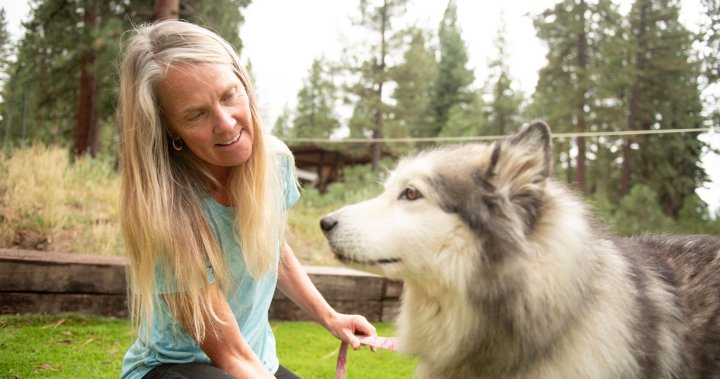A Toronto-based company that analyzes canine DNA is in the doghouse after an investigative report raised questions about the accuracy of its dog breed identification tests. The company, however, has stood by its services in communication with Global News.
DNA My Dog claims to provide its customers with the “highest possible accuracy” in determining a dog’s breed, and also offers services to identify a dog’s allergies and “genetic age,” via analysis of a cheek swab.
These DNA testing kits cost between $79.99 and $199.99 and are analyzed at the company’s office in Birch Cliff, a neighbourhood in the eastern part of Toronto.
An investigative team at WBZ News, located in Boston, Mass., decided to put DNA My Dog, and other pet DNA services like it, to the test. But instead of sending in a cheek swab from a dog, they submitted DNA taken from the cheek of their reporter, Christina Hager.
Two companies, Orivet and Wisdom Panel, analyzed the swabs and found that the DNA provided could not yield a reliable result. But DNA My Dog determined that Hager was 40 per cent Alaskan Malamute, 35 per cent Shar-Pei and 25 per cent Labrador, according to the report.
One year ago, WBZ News carried out a similar investigation and had New Hampshire pet owner Michelle Leininger send in a cheek swab to DNA My Dog. The same thing happened. DNA My Dog identified Leininger as 40 per cent Border Collie, 32 per cent Cane Corso and 28 per cent Bulldog, according to the report.
The email you need for the day’s
top news stories from Canada and around the world.
The email you need for the day’s
top news stories from Canada and around the world.
“Some people might agree,” Leininger joked at the time, but added that she “wouldn’t waste the money” testing one of her pets.
At the time, DNA My Dog Service Director Jessica Barnett wrote to WBZ News saying canine DNA was only found on the second of two samples submitted to the company.
“The second sample did in fact yield canine DNA … The results provided would not be possible on a human sample,” Barnett wrote.
In an email to Global News on Thursday, Barnett said it was “unfortunate that the accuracy of our canine DNA test has been called into question over the repeated submission of human DNA samples.”
She noted that the company’s tests are not designed to handle DNA that didn’t come from a dog.
“Our test is designed to measure canine DNA specifically, not DNA from humans nor any other species,” Barnett wrote. “These non-canine samples have absolutely no bearing on the accuracy of our canine breed identification testing, and to say so would be a false equivalency.”
Barnett also claims that when WBZ sent samples taken from Hager’s cheek, the first sample “failed our analysis” and “was indeed non-canine DNA.”
“The second sample submitted yielded a strong genetic match to canine breed markers, indicating that this sample was, in fact, a canine DNA sample,” Barnett wrote.
This is similar to the explanation the company gave when Leininger was identified as 40 per cent Border Collie.
DNA My Dog sent Global News a screenshot of an email appearing to show that the first sample did indeed fail the analysis while the second sample produced a dog breed analysis report.
As for why the second sample was able to produce a breakdown of dog breeds — even if only human DNA was present — Barnett explains that DNA My Dog uses an algorithm to produce these dog breed analysis reports.
If a sample contains non-canine DNA, the algorithm may “either report no results at all or provide erroneous dog breed results.”
So, even when the algorithm detects that there is a genetic mismatch, it may still “randomly associate the (non-canine) genetic sequences with canine ones,” Barnett wrote.
This appears to be a glaring issue with the company’s algorithm, but Barnett notes that these investigations were carried out while DNA My Dog was still using an “old testing platform, which has since been phased out and replaced with a much more robust and highly-sensitive system.”
“This system will not consider samples that are not 100% canine DNA,” she wrote.
© 2024 Global News, a division of Corus Entertainment Inc.





